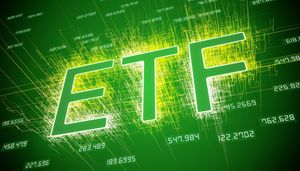
In a financial landscape often characterized by fluctuating market sentiments and unpredictable economic shifts, Jim Cramer, the influential host of CNBC's "Mad Money," has consistently championed AutoZone's (NYSE: AZO) relentless share repurchase program. Cramer heralds AutoZone's strategy as "legendary" and "the most aggressive buyback in the New York Stock Exchange," asserting its pivotal role in the company's sustained success and robust shareholder returns. This aggressive approach to capital allocation not only underscores AutoZone's financial discipline but also offers a compelling case study for investors seeking long-term value in a dynamic market.
Cramer's long-standing endorsement of AutoZone stems from the company's unwavering commitment to utilizing its free cash flow to repurchase shares, a strategy that has demonstrably boosted earnings per share (EPS) and, consequently, stock performance. As the market grapples with broader economic uncertainties, AutoZone's consistent execution of this strategy stands out, drawing attention to its potential to weather downturns and continue delivering for its investors.
AutoZone's Unyielding Buyback: What Happened and Why It Matters
AutoZone's share buyback program, initiated in 1998, is remarkable for its scale and consistency. Over the past two and a half decades, the auto parts giant has repurchased an astounding $36.3 billion worth of shares. This commitment was recently reaffirmed with an additional $1.5 billion authorization for share repurchases, signaling the company's continued belief in its own intrinsic value. Cramer emphasizes the tangible impact of these buybacks, noting that AutoZone's outstanding shares have dramatically decreased from approximately 31 million a decade ago to less than 17 million today, an 87% reduction since its IPO in 1991. This translates to an annual repurchase rate of about 6% to 8% of its shares.
The significance of this strategy, according to Cramer, lies in its direct correlation with EPS growth, which he views as the primary engine of stock returns. AutoZone's management compensation is notably tied to diluted EPS growth, creating a powerful incentive for these aggressive repurchases. Furthermore, Cramer highlights AutoZone's exceptional performance during economic slowdowns. As new car prices escalate—partially due to tariffs—consumers tend to extend the lifespan of their older vehicles, driving increased demand for automotive parts and DIY repairs. This counter-cyclical resilience provides a stable business environment, enabling AutoZone to consistently generate the robust cash flow necessary to fuel its buyback program.
How AutoZone's Strategy Might Affect the Market
AutoZone's disciplined capital allocation strategy has positioned it as a beacon of stability and growth, even amidst broader macroeconomic challenges. Cramer often refers to AutoZone as a "buyback aristocrat," a company that consistently reduces its share count, a characteristic historically associated with outperformance during economic contractions. The compounded effect of EPS growth from both buybacks and net income growth has been a potent recipe for significant investor returns, with the stock delivering a staggering 453x return since its IPO.
In a market where general buyback growth for the S&P 500 might be flattening, AutoZone's continued aggressive repurchases become even more significant. This makes AutoZone an attractive investment, offering a clear example of how strategic capital deployment can insulate a company from wider market volatility. Its success could encourage other companies with strong free cash flow to consider similar strategies, particularly those in resilient industries. This approach not only rewards existing shareholders but also signals management's confidence in the company's future prospects, potentially drawing in new investors looking for stable, growth-oriented opportunities.
Companies That Might Win or Lose from This Trend
Winners:
- AutoZone (NYSE: AZO): Undoubtedly the primary beneficiary of its own strategy. Its consistent performance, robust business model, and aggressive share repurchases directly contribute to enhanced shareholder value. The company's ability to thrive in various economic conditions, particularly during slowdowns, further solidifies its winning position.
- Other "Buyback Aristocrats": Companies with similar consistent and aggressive buyback programs, such as Jabil (NYSE: JBL), Wells Fargo (NYSE: WFC), and Apple (NASDAQ: AAPL), could also be seen as winners. Their commitment to returning capital to shareholders through reduced share counts often leads to favorable market perceptions and stronger EPS growth, particularly in a market where such discipline is valued.
Potential Losers or Less Preferred:
- O'Reilly Automotive, Inc. (NASDAQ: ORLY): Cramer has explicitly expressed a preference for AutoZone over O'Reilly Automotive, Inc., particularly in the context of avoiding stock splits and favoring AutoZone's consistent buyback strategy. Recent reports of O'Reilly's first-quarter earnings and sales missing market estimates further highlight the comparative advantage of AutoZone's consistent performance and capital allocation. Companies that fail to effectively manage their capital, or whose buyback programs are inconsistent or poorly timed, may find themselves at a disadvantage, especially when compared to the disciplined approach of AutoZone.
Broader Implications of AutoZone's Strategy
AutoZone's buyback strategy is not just an isolated financial maneuver; it is deeply intertwined with broader industry trends and competitive dynamics. The aging vehicle fleet in the U.S., a direct consequence of the increasing cost of new cars, creates a sustained and growing demand for replacement parts. This secular trend provides a strong tailwind for the auto parts industry, allowing companies like AutoZone to capitalize on a captive market.
AutoZone's vast network of stores, coupled with its efficient logistics system, including "hubs and mega-hubs" that stock a wide selection of parts, provides a significant competitive advantage over smaller, less integrated retailers. This operational excellence, combined with its astute capital allocation, enables AutoZone to continuously expand its market share and enhance profit margins. The company's long-standing commitment to buybacks also contrasts sharply with the broader market trend, where Cramer has observed a flattening of buyback growth for the S&P 500. This makes AutoZone's continued aggressive repurchases a standout feature, potentially influencing how other companies in the retail and automotive sectors approach their own capital management. Regulatory bodies might also take note of such aggressive buyback programs, especially if they become a widespread trend, potentially leading to discussions around capital allocation and market stability.
What Readers Should Pay Attention to Next
Moving forward, investors and industry observers should closely monitor AutoZone's continued execution of its buyback strategy. Any significant deviation from this long-standing approach could signal a shift in management's outlook or market conditions. Pay attention to quarterly earnings reports, specifically the diluted EPS figures, and any announcements regarding further share repurchase authorizations. The performance of the broader auto parts sector, particularly competitors like O'Reilly Automotive, Inc., will also provide valuable context.
Furthermore, keep an eye on broader economic indicators, such as new car sales, used car prices, and consumer spending on vehicle maintenance. These factors directly influence the demand for auto parts and thus AutoZone's underlying business strength. Any policy changes related to tariffs on imported goods, which can impact the cost of new vehicles and potentially prolong the life of older ones, will also be crucial. Competitors might attempt to emulate AutoZone's success, leading to increased focus on capital efficiency and shareholder returns across the industry.
Conclusion
Jim Cramer's unwavering confidence in AutoZone's aggressive share buyback strategy highlights a powerful model for creating and sustaining shareholder value. By consistently reducing its outstanding share count, AutoZone has not only boosted its EPS but also demonstrated remarkable resilience in various economic climates. This strategy, coupled with the favorable dynamics of an aging vehicle fleet and robust demand for DIY repairs, firmly establishes AutoZone as a leader in the auto parts industry and a compelling investment case.
The company's approach offers a valuable lesson in disciplined capital allocation, particularly in an environment where many companies struggle to find consistent growth drivers. As the market evolves, AutoZone's "buyback aristocrat" status will likely continue to attract investors seeking stability and long-term returns. Investors should closely watch AutoZone's continued commitment to this strategy and the broader trends in the auto parts sector to identify potential opportunities and challenges in the coming months.
This content is intended for informational purposes only and is not financial advice





